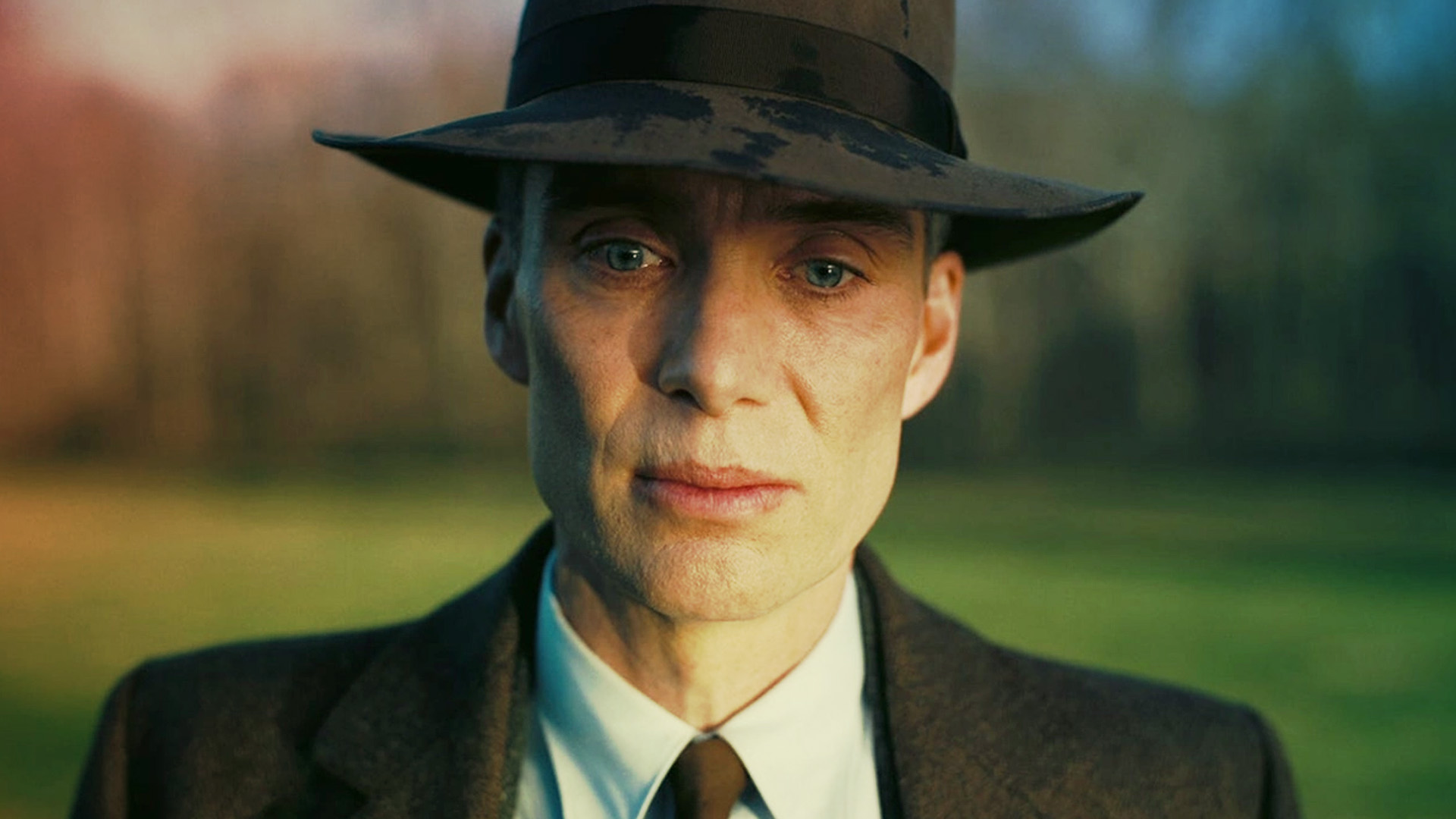Entertainment
Oppenheimer Ending Explained: What Happened In The End?

Oppenheimer Ending Explained: “Oppenheimer” is a film written and directed by Christopher Nolan that follows the life of physicist J. Robert Oppenheimer, portrayed by Cillian Murphy, through various decades, including his involvement in the development of the atomic bomb, which was later exploded over Hiroshima and Nagasaki during World War II.
The film also explores the hearing initiated by Lewis Strauss, which led to the revocation of Oppenheimer’s security clearance.
The ending of “Oppenheimer” leaves the audience pondering a profound question posed by Oppenheimer’s wife, Kitty: Can the world ever forgive Oppenheimer for his pivotal role in creating the atomic bomb and the destruction it caused?
The film ends with a pivotal scene between Oppenheimer and the famous physicist Albert Einstein.
The scene takes place after Oppenheimer’s hearing, where his security clearance was taken away and Strauss’ Senate appointment was denied. As the film ends, witness Oppenheimer imagining the disastrous destruction that nuclear war would bring to the world.
The implication is that Oppenheimer carries the weight of his actions and the potential consequences of his scientific contributions.
Thus, the film’s conclusion highlights the ethical and moral dilemmas faced by scientists involved in the development of destructive technologies.
It also raises questions about forgiveness, accountability, and the broader impact of scientific discoveries on humanity. Continue reading this article to know more about the ending of the movie.
Recap Of The Film Oppenheimer

The film follows Lewis Strauss who had a personal grudge against J. Robert Oppenheimer due to a past incident where Oppenheimer had mocked him during a hearing on radioisotopes.
This animosity drove Strauss to take action, fearing that Oppenheimer’s influence on government decisions about nuclear weapons, particularly his opposition to their dangers, would persist if he ran the Atomic Energy Commission (AEC).
Christopher Nolan effectively portrayed the push-pull dynamic between the two through parallel hearings, showcasing their conflicting views.
Though Strauss succeeded in derailing Oppenheimer’s career, he failed in securing his own position on the cabinet due to opposition from other scientists and the Democratic Party, including John F. Kennedy, who later played a role in rehabilitating Oppenheimer’s reputation.
The hearings also revealed Oppenheimer’s change of heart towards nuclear weaponry, opposing the hydrogen bomb and advocating for nuclear peace. However, he didn’t regret his involvement in building the atomic bomb, seeing it as a necessary assignment.
In the end, Chose to let go of his past alliances with the Communist party and seek forgiveness for his role in the atomic bomb’s creation, in the hopes of preserving his security clearance, despite his wife Kitty urging him to fight back.
Also Read: When Is Indiana Jones 6 Coming?
Oppenheimer Ending Explained: What Happened In The End?

At the end of “Oppenheimer,” we witness a haunting portrayal of the destruction caused by nuclear war.
The ending scene portrays Oppenheimer envisioning the devastating consequences of nuclear war on Earth, a consequence set loose by the creation of the atomic bomb.
His mind grapples with the catastrophic impact and the realization that it could be far worse.
Concurrently, Oppenheimer observes raindrops falling on a pond, evoking a parallel to the film’s opening scene. This juxtaposition seems to imply that the quantum world, with its tiny but impactful atoms resembling raindrops, mirrors the large-scale destruction caused by nuclear explosions.
The film draws a poignant connection between Oppenheimer’s creation of the atomic bomb, born from his own fears as a young man, and the ensuing global horror. It serves as a haunting reminder that the atomic bomb was merely the starting point of potential devastation.
Also Read: Barbie Ending Explained: What Barbie Decides At The End Of The Film?
What Happened In The End?

Following the revocation of his security clearance, J. Robert Oppenheimer made the decision to retreat from public life and moved with his family to St. John in the Virgin Islands.
Despite the setback, he continued to deliver lectures and became increasingly vocal about the responsible use of scientific inventions and the potential threats they posed to the world.
Alongside Albert Einstein and other scientists, Oppenheimer founded The World Academy of Art and Science. In 1947, he took on the role of director at Princeton’s Institute for Advanced Study.
He also authored a book that expressed his concerns regarding the intersection of science and politics, incorporating his lectures into its contents.
However, due to the consequences of the security hearing, he refrained from openly opposing nuclear weapons as some of his colleagues did. Throughout this period, Oppenheimer remained dedicated to discussing science, but his political influence was severely curtailed.
Nonetheless, in 1963, he was awarded the Enrico Fermi Award, recognizing his significant contributions during World War II, a recognition President John F. Kennedy actively supported. Sadly, Oppenheimer’s health declined, and he succumbed to throat cancer in February 1967.
Thus, throughout his life, Oppenheimer never ceased to engage in scientific discussions, but the stain from the security hearing profoundly impacted his ability to wield influence, shaping the trajectory of his remaining days.
Nevertheless, his legacy endured, leaving a lasting impact on the scientific community and the world.
